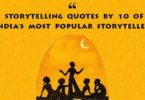(This post was first published on Medium by Valeriano Donzelli on March 3, 2016 here.)
I’m on a plane, back from a two-week leadership course.
I enjoyed every single moment of it. And learned a lot. There’s one aspect though that made this experience one of the most remarkable times of my life: being surrounded by 48 inspiring leaders.
I consider myself a person with a high propensity to be inspired: I easily find sources of interest and joy in people and activities. My grandfather was a teacher; after school he would spend quality time with me telling meaningful stories, showing me books and illustrations. All in all, I was blessed to live in family environment that fostered in me curiosity and openness to new experiences.
As we can observe, pretty much everything can constitute a motivation. However, what motivates you won’t necessarily make you happy, or a more developed human being. You might feel motivated to work harder in order to get a promotion. Or you might train yourself to the limit to win a competition. But what happens if you “fail”? Was it really worth all the effort?
The inherent issue with “outcome-driven” motivations is that very often they don’t let you entertain the present moment and by definition your satisfaction level will mostly lie on the result. In other words, you’ll end up anywhere between annoyed and devastated by the pure fact of not having achieved your goal.
Here lies indeed the difference between motivation and inspiration: the latter connects you with something which is at the same time deeper within yourself and out of your comfort zone.
Inspiration can make you click and can elicit paradigm shifts. It calls you to strive for a new purpose or drives you to higher awareness.
As participants of the course, we came from all parts of the world. We dealt with different products or services, and work in different functions. However, in this context, our diversity brought so much value to this experience that it’s hard to describe with words: the number of stories I’ve heard in the last two weeks is staggering.
What’s even more relevant is the POWER of these stories.
Everyone could share a great deal of funny, larger-than-life stories. We all felt and came to realize that HUMOR is such a precious element in our business world: we learned laughter is one of the main endowments to re-set our strained brain and to release stress.
What made us feel even more connected to each other is another aspect though: the power of vulnerability. By sharing our struggles, our failures and our losses, we bonded on the deeper level of humanity that we all share.

The last gift from the course…
The capability to own our stories and drive others through them without polishing, make-up or politics, highlighted that the differences on the superficial level (education, religion, race, job… etc) could only enrich us as a group while helping us recognize we are astonishingly alike on a spiritual level. We all want to love and to be loved, we aspire to work on something meaningful, we get boosted by laughing regularly, and feel comforted knowing we have someone to hug when we need to cry tears of joy or sadness.
I have never witnessed so many spontaneous hugs between people that met for the first time. It felt so warm. In fact, “Jhappi” (the Hindi word for “hug”) became the buzz word of the campus.
The truth is, being inspired often makes you inspiring for others.
When you are inspired, your energy surrounds you and naturally expands your capability to attract and lift others. When many inspiring people meet, they create a reciprocating virtuous circle.
If you feel down or at a stall in your life, or if you simply want to develop yourself, consider this: meet joyous people. Invite one for a coffee or lunch. Meet those who don’t need anything special to happen in their lives to feel genuinely happy, the ones that smile on Monday at 8 AM and, you can sense, they mean it.
What inspiring people have in common is the attitude of turning their stories into positive energies, no matter the content and the perception they had of the events at the time they occurred.
What seemed to be a failure can became a blessing. A loss reverts into an awakening. An apparent “coincidence” finds its thread. A constraint is transformed into an opportunity.
Everyone has inspiring stories. Everyone.
It turns out, the best story tellers document their life by journaling. They take a short note of any event or idea they find worth recording, and later elaborate on them. Or perhaps they simply keep a diary.
Great leaders are not afraid of failures: they don’t feel invulnerable; on the contrary, they know perfection is not a human endowment, so they give up pursuing it. Instead, they aim at collective progress.
Also, they are great story-tellers. They inspire you with their intriguing mix of passion, humility and desire to continuously evolve.
When you meet these people, let them inspire you. And if you have the chance, tell them your story.
You may find out, you can inspire them, too.
—
Are you a parent/educator/storyteller and would like to share your storytelling experiences. Write in with your story to editor@tell-a-tale.com.





